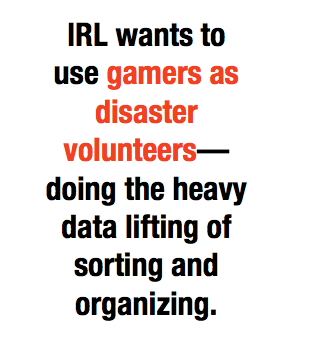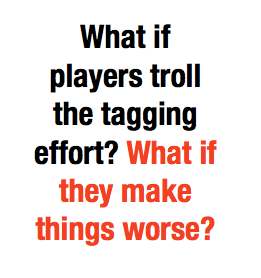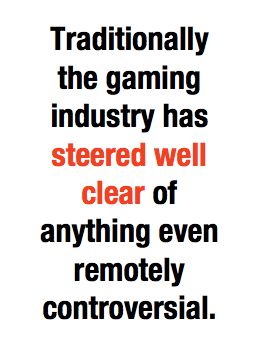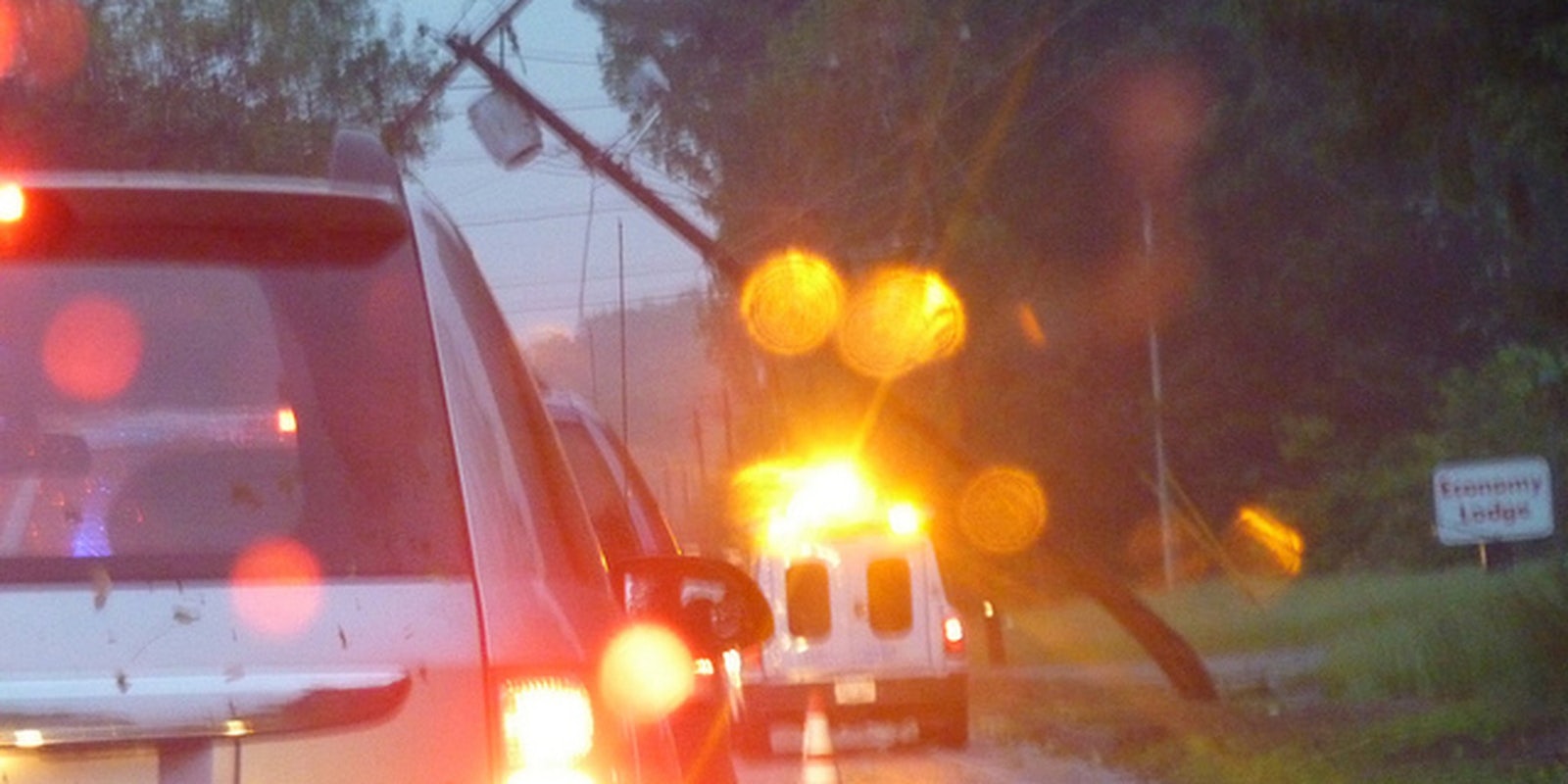It is Tuesday night, raid night for your World of Warcraft guild. You log in, ready yourself with a pile of snacks and energy drinks, and ready up. However, instead of fighting for your life in Hellfire Citadel, you grind out experience with your guildies doing something quite different: identifying, organizing, and tagging photos taken from a hurricane disaster zone.
That, at least, is the idea put forward by Patrick Meier (full disclosure: one of my closest friends) and Peter Monsur. They are the founders of the Internet Response League (IRL). The goal of the IRL is to assist in disaster response efforts by tapping into a specific wealth of, to quote Clay Shirky, “cognitive surplus.” They want to use gamers as disaster volunteers—doing the heavy data lifting of sorting and organizing the massive amounts of disaster-relevant data we get on Twitter, Instagram, Facebook, and other social media.
 Disasters produce a surge of social media posts. These Tweets, photos, and videos are more than just newsworthy; they can actually provide disaster responders with close to real-time intelligence about critical conditions on the ground. The data could help aid workers identify the areas most in need for specific supplies, like chainsaws or generators, or even help coordinate which evacuation routes are open. But before that data can be useful to disaster responders, it needs to be organized and assessed: tags for location, labeling, and labeling of contents, among other things.
Disasters produce a surge of social media posts. These Tweets, photos, and videos are more than just newsworthy; they can actually provide disaster responders with close to real-time intelligence about critical conditions on the ground. The data could help aid workers identify the areas most in need for specific supplies, like chainsaws or generators, or even help coordinate which evacuation routes are open. But before that data can be useful to disaster responders, it needs to be organized and assessed: tags for location, labeling, and labeling of contents, among other things.
So this is where, according to IRL, gamers can come in. By presenting them with the right incentives—albeit gold, experience, or something else—disaster response efforts can tap into that seemingly inexhaustible capacity gamers have of accomplishing rather mundane and repetitive tasks. In other words, grind.
 It is an exciting idea and I hope Meier and Monsur can pull it off. There are, however, two significant challenges standing in their way. The first is that traditionally the gaming industry has steered well clear of anything even remotely controversial. When it comes to real life issues, they keep their distance. Asking them to get involved in and contribute to disaster relief efforts (beyond donating money) is likely, in their eyes, to expose them to a whole range of public relations risks they have previously never had to deal with. What if players troll the tagging effort? What if they make things worse? These are questions online disaster volunteers have dealt with for years, but to game developers it is virgin, and likely terrifying, territory.
It is an exciting idea and I hope Meier and Monsur can pull it off. There are, however, two significant challenges standing in their way. The first is that traditionally the gaming industry has steered well clear of anything even remotely controversial. When it comes to real life issues, they keep their distance. Asking them to get involved in and contribute to disaster relief efforts (beyond donating money) is likely, in their eyes, to expose them to a whole range of public relations risks they have previously never had to deal with. What if players troll the tagging effort? What if they make things worse? These are questions online disaster volunteers have dealt with for years, but to game developers it is virgin, and likely terrifying, territory.
So why do IRL’s efforts need to depend on game developers? Why can’t disaster responders make their own games? This leads to the second challenge. Gamers do not spend hundreds, or even thousands, of hours finishing quests and killing mobs because they have nothing better to do. They do it because professional game designers are experts at creating enticing short and long term reward systems that keep players motivated, and gaming—even when they should probably be studying, working, sleeping.
 This reward system isn’t blind luck; it’s the result of tried and tested methods identified by game designers. Gamers could put down their controller, but if they spend 15 more minutes, they get new gun, level, or title. You get the point.
This reward system isn’t blind luck; it’s the result of tried and tested methods identified by game designers. Gamers could put down their controller, but if they spend 15 more minutes, they get new gun, level, or title. You get the point.
The reason many educational games are horrible to play is not that the gameplay is any more mundane than grinding mobs in World of Warcraft (Seriously. Do that for a month and tell me it is not exquisitely dull.). It is rather that the designers of educational games so often forget the greatest allure of gaming: the incentive structure enticing players to keep coming back.
This same problem would have to be overcome by any gamification of disaster relief IRL introduces. For IRL to be successful, it needs to be very consciously about the incentives players have to keep playing—photo after photo, hour after hour, and day after day.
I hope they can do it. IRL has real potential to create new and incredibly invaluable sources of data can could help alleviate some of the pain around natural disasters. Doing so will require overcoming both of these hurdles. With luck, though, Meier and Monsur will turn in-game adventurers into real life heros.
Chris R. Albon is a political scientist and writer on the global politics of science and technology. Chris earned a Ph.D. in Political Science from the University of California, Davis. He blogs at ChrisRAlbon.com.
Photo by Lisa Jacobs/Flickr


